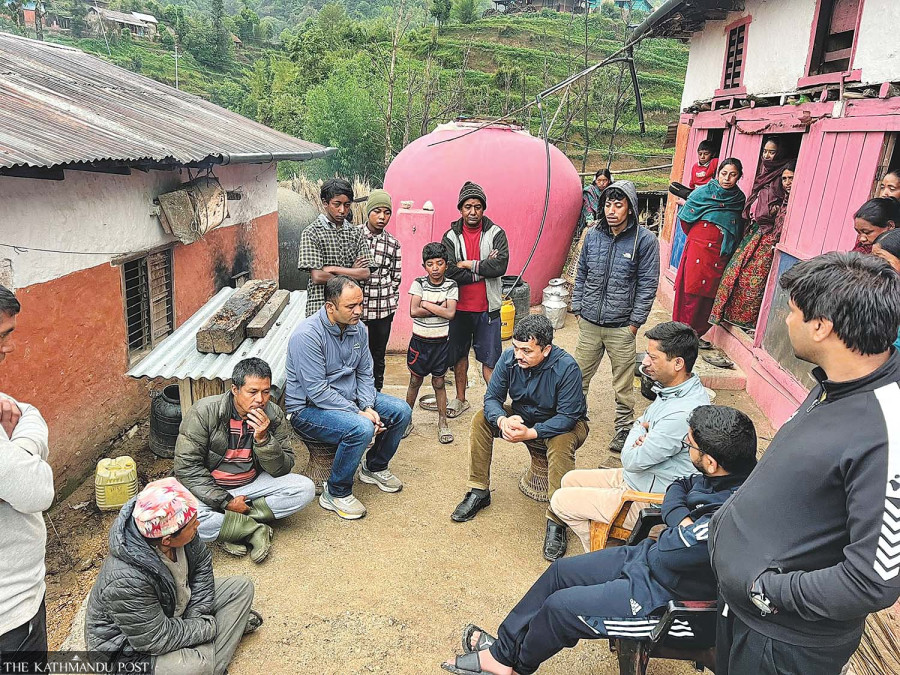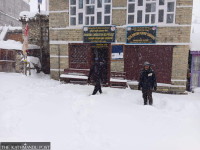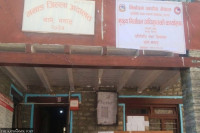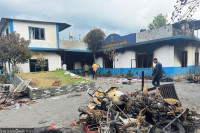Gandaki Province
The long walk to school
Children from a Baglung village walk up to six hours daily through treacherous mountain trails to attend school. Officials plan a municipal hostel to ease the students’ plight.
Prakash Baral
Going to school is an uphill battle for 14-year-old Sharmila BK of Thalepokhara in ward 8 of Galkot Municipality in Baglung district. Every morning, she embarks on a three-hour trek through steep, slippery trails and dense forest to reach her school, Shiva Secondary School, located on the bank of the Daramkhola river. Her return journey is even more arduous, which takes nearly three and a half hours due to the uphill climb.
Sharmila has to carry a torchlight in her schoolbag, especially in winter, to return home in the evening. The eighth grader is not alone in her ordeal. Her classmate Suman Galami faces the same struggle. The two, along with a few others from their village, walk in groups for safety, especially during the monsoon when the forest paths become muddy and treacherous.
The remote village of Thalepokhara, situated at an altitude of 2,100 meters above sea level, does not have a secondary school. Though the village has a primary school, students must travel long distances to continue their education beyond grade five.
Currently, 15 students from Thalepokhara attend Shiva Secondary School, while some younger students are enrolled at Devkota Basic School, which is slightly closer but only offers education up to the seventh grade.
The daily six-hour round trip poses significant challenges—not just in terms of physical exhaustion, but also safety concerns and lack of time for study. For poverty-stricken families of Thalepokhara, it is nearly impossible to consistently support their children's education under such conditions.
“The school children are suffering greatly. They’re not only walking long hours but also missing out on proper study time," said Chham Bahadur Galami, a local guardian who is also an elected member of ward 8 of Galkot Municipality. The authorities concerned should consider the gravity of the problem, he urged.
Realising the gravity of the issue, ward chair Tej Prasad Sapkota has initiated a plan to set up a hostel for students from remote areas like Thalepokhara. “We’ve decided to build a hostel so children can stay closer to school and focus on their studies,” Sapkota said. “If the municipality provides support, great. If not, we’ll use our ward budget to make it happen.”
According to Sapkota, coordination has already begun with school principal Hari Chalise and the Social Development Committee to address the problem. Chalise confirmed that a proposal has been made to build a hostel on two-and-a-half-ropani (0.13 hectares) of land belonging to the school. The school currently has two rooms and a toilet facility and could serve as a temporary hostel for a small group of students.
“We’ve informed the municipality about our plans. We aim to create a proper hostel building and gather necessary materials to support the students. This way, at least a few children will be relieved from their daily hardship,” Chalise said.
Him Bahadur Bhandari, coordinator of the Social Development Committee, said the issue is deeply concerning and deserves immediate attention. “These children are enduring real hardships for education. It’s our responsibility to help. We are planning to provide food and shelter through the ward and municipality while also encouraging parents to send their children to school," he said.
In some cases, geographical distance and lack of awareness have led parents to keep children at home for household chores. But the proposed hostel could be a game-changer—not just for Thalepokhara but for underprivileged children across Galkot Municipality.
According to Chalise, the facility could accommodate children from Dalit and marginalised communities who are otherwise deprived of access to quality education. “With modest investment, we can set up a municipal-level hostel to support children who need it the most,” he said, adding that the school will not charge fees for hostel residents.
Municipal officials have also expressed a positive attitude toward the initiative. The existing two-room structure will be put to immediate use, and efforts are underway to expand the facility. Given the municipality’s semi-urban location and proximity to major roads, the school could also become a safe haven for children found living in vulnerable conditions.




 9.7°C Kathmandu
9.7°C Kathmandu.jpg)











